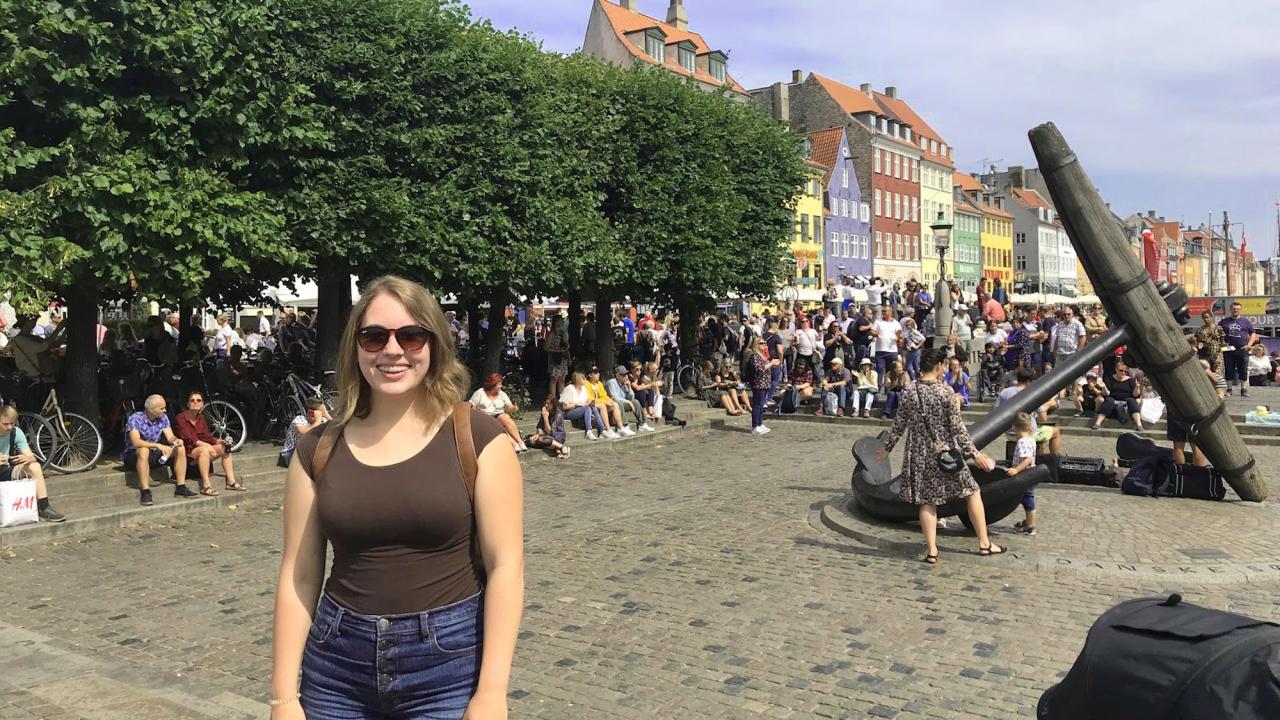Student profile
- Name: Christine DeLong
- Major and class standing during your program: Senior in managerial economics (emphasis: environmental economics)
- Program: UC Davis Summer Abroad Europe, Sustainable Cities of Northern Europe (Sweden, Denmark, Germany, Switzerland)
What motivated you to participate in study abroad?
Studying abroad always seemed like an enticing opportunity, but it took a breakthrough moment of confidence my junior year for me to actually enroll. With a year and a half remaining in college, I realized I wanted to do something entirely for myself. I wanted to travel, expand my mindset, and make new memories before I graduated. Looking back now, I can confidently say that study abroad was the most exciting and adventurous thing I did while in college. I’m thankful I took the leap.
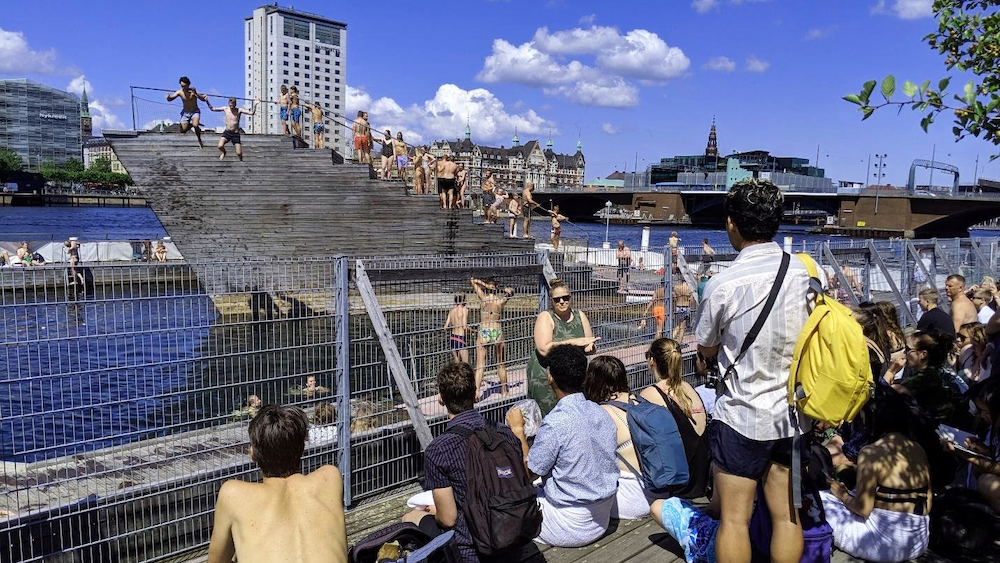
What led you to choose the program you participated in?
I was about halfway through my degree when I decided that I wanted to pivot in my field of study. I wanted to find a program that allowed me to study sustainability through an economic lens while also building out my environmental economics emphasis.
Sustainable Cities was the perfect program because it was a unique blend of my interests. It also brought me to four amazing countries, which was a huge bonus for me as a first time traveler. This program introduced me to the intricacies of sustainable urban development and helped me understand the political, social, and cultural conditions that enable successful sustainability initiatives.
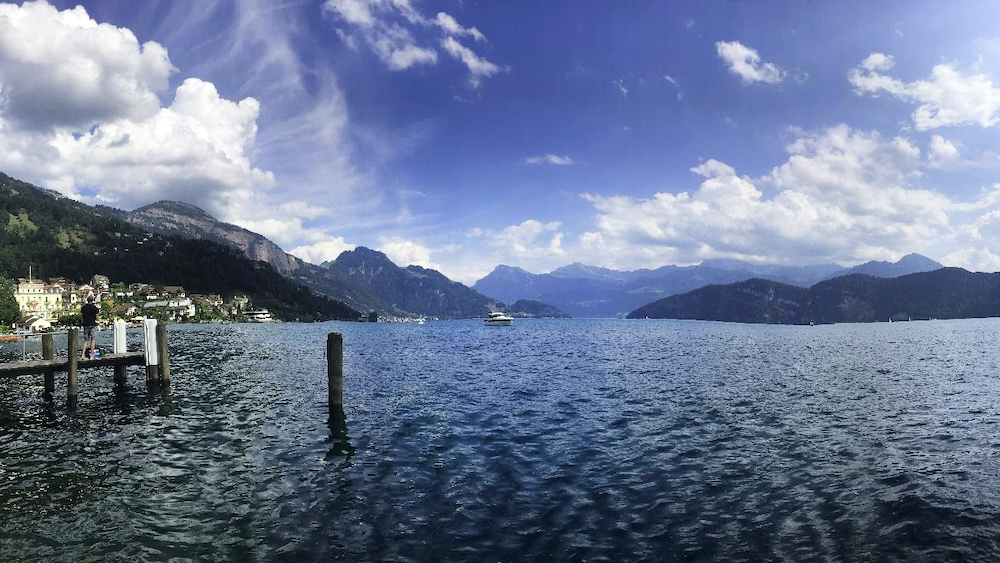
What advice do you have for someone considering your program or an international experience in general?
For those considering studying abroad, I would absolutely recommend it. It was an incredible confidence builder, both personally and academically. I came back from my program full of gratitude for the friends, experiences, and memories I made. It’s an amazing adventure. My advice would be: don’t wonder what it would’ve been like — go and see for yourself.
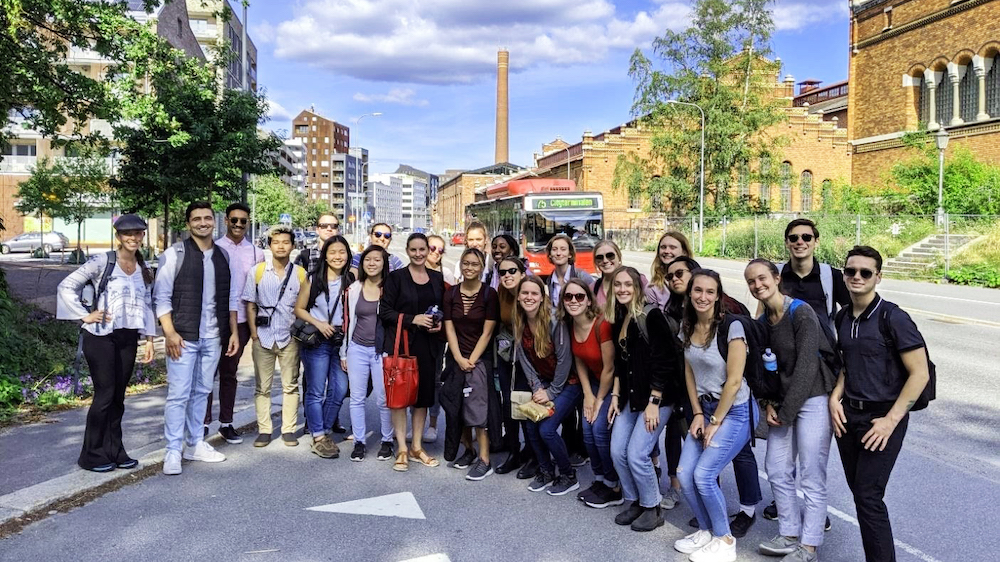
What was your biggest concern in regards to the time and cost of your program?
Programs can be costly. The good news is that there are scholarships, grants, and even GoFundMe campaigns to help with that. Moreover, there’s many opportunities to save on discretionary spending while you’re abroad (dining, drinks, recreation, souvenirs, etc.).
For me, I saved on food by alternating between grocery shopping and dining out. I saved on flights by booking with budget airlines and only traveling with a carry-on and personal item. I saved on purchases by using a credit card and debit card without foreign transaction fees. I’d also recommend crowdsourcing tips and tricks from family, friends, travel blogs and even Facebook travel groups (one of my favorite groups is Girls LOVE Travel).
What did you learn from your experience interacting with other cultures, people and places?
One of the biggest takeaways from my time abroad relates to communication. Specifically, I struggled with the fact that so many different languages were spoken in the countries I visited (Swedish, German, Danish, Swiss German, French and more!).
Because I wasn’t able to learn verbal skills in 5+ languages before going, I picked up on some non-verbal skills that I found universally helpful across countries. Whether it was ordering food, asking for directions or initiating conversation with a local, these tips helped me overcome some of the barriers created by language.
- Have a humble disposition.
- Display some effort (this might mean pulling out Google translate, showing pictures or using body language to indicate meaning).
- Express gratitude (this can be as simple as learning to say please and thank you in the local language or smiling when someone helps you).
- Be willing to learn.
What was a typical day like on your program?
Each day started early — between 7-8 a.m. — with everyone eating breakfast together at the hotel. We would venture out into the city by foot, bike, bus, train or boat. Transportation was one of the themes of our program, so our days were as much about the transportation experience as they were about the destination itself.
Either our professor or a local scholar led our guided tours. We toured a waste-to-energy facility, glimpsed remote island sustainability and cooperative style living, and discussed solar energy at a photovoltaic research facility. We also visited many different housing development communities. We’d stop along the way for questions, pictures, group discussions and lunch.
Depending on the schedule, the structured part of our day would end between 2-5 p.m. This left plenty of time to make dinner plans, relax, work on your assignments or go on another adventure entirely. I was definitely tired when class was over, but there was always something to do or see that kept me out and about until later in the evening.
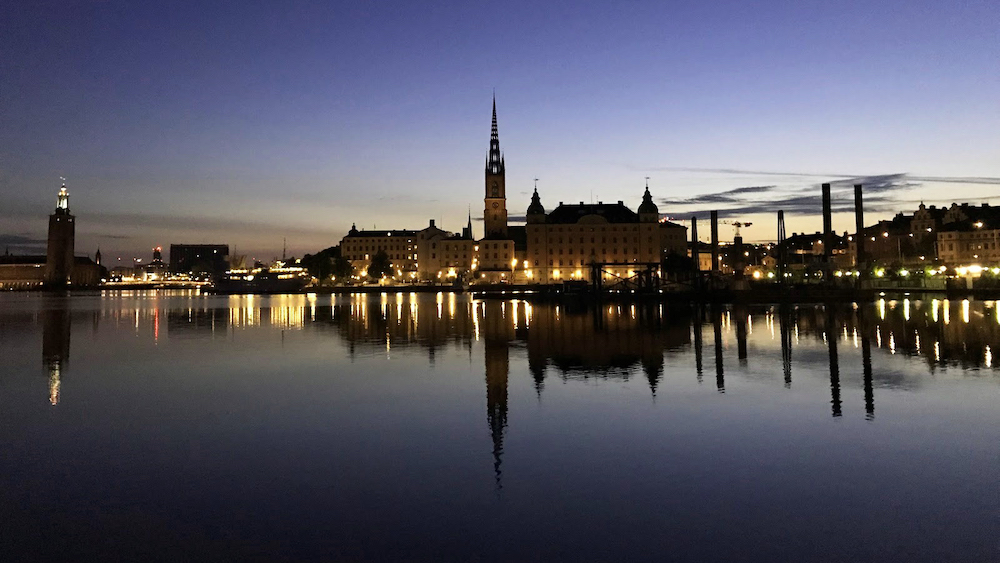
What is one of your most memorable experiences from your program?
It’s too hard to pick just one experience! I’ll mention a few that make the highlight reel every time I reminisce.
- Protesting with Greta Thunberg outside Swedish parliament.
- Experiencing Stockholm’s midnight sun.
- Conquering the five-meter diving board at Islands Brygge harbour bath.
- Touring the waste-to-energy facility that powers all of Copenhagen.
- Relishing the gelato, biergartens and historic feel of Freiburg, Germany.
- Standing on Mount Rigi and marveling at the Swiss Alps.
How do you think your program experiences will benefit you in the future?
Study abroad has been (and continues to be) hugely beneficial to me. I’ve gained a sense of personal confidence that I carry with me every day. I have the confidence I need to navigate unfamiliar circumstances, embrace new people and be resilient when faced with challenges.
This is something everyone notices, employers included. In just about every interview I’ve had, study abroad comes up. It not only boosts your resume, but it also says a lot about you. It shows that you’re comfortable trying new things, getting out of your comfort zone and going the extra mile.
Aggies Abroad
This story is crossposted from the Global Learning Hub Blog. Aggies Abroad is a student-driven storytelling effort of the Global Learning Blog where students can share their global experiences with fellow Aggies considering a study abroad program. Submit an Aggies Abroad Profile to be considered for a web and/or social media feature. Search all global learning programs and funding across UC Davis.
About the Global Learning Hub at UC Davis
Through the Global Learning Hub, each and every UC Davis student can find global learning opportunities available on campus, in the region, virtually, and internationally. The Hub offers global learning programs, workshops and resources that enhance all UC Davis students’ academic and career pursuits through four broad areas of opportunities: Community Engagement; Global Skills and Leadership; Internships and Research; and Study Abroad. UC Davis is committed to preparing the next generation of global problem solvers and change makers. As such, we aim to prepare our undergraduate, graduate and professional students to solve global challenges collaboratively, equitably and sustainably.
As a part of Global Affairs, the Global Learning Hub aims to inspire global curiosity, understanding and engagement.
